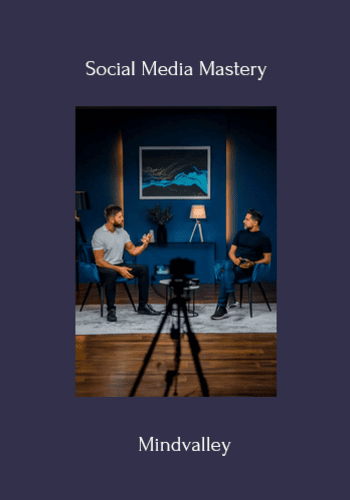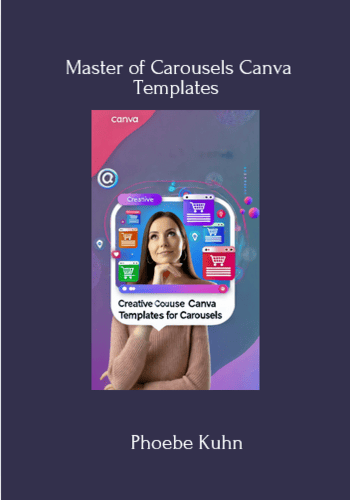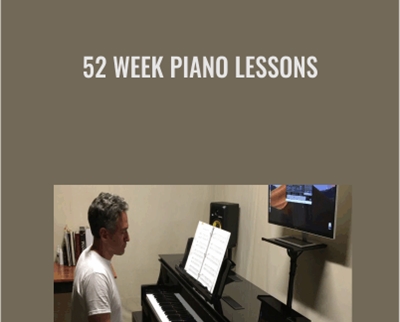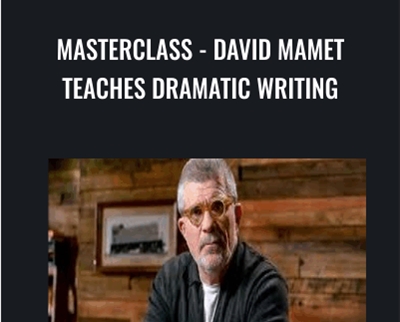Imagineering-EFT for Severe & Chronic Pain – Gwyneth Moss
Original price was: $117.00.$32.00Current price is: $32.00.
Imagineering-EFT for Severe & Chronic Pain – Gwyneth Moss has the same quality as the author’s salapage. When using EFT with a physical symptom the obvious place to start is with the pain.
Salepage link: At HERE. Archive:
Part 1: What is Imagineering?
When using EFT with a physical symptom the obvious place to start is with the pain. But what if there is no pain? Sometimes when people come to us for help with a physical symptom they tell us how painful it has been and how they anticipate further pain but when you ask “on a scale from 0 to 10 where 0 is no pain at all and 10 is as bad as it can be, what number would you give it now?” Their response comes back “well it doesn’t hurt just now”. Oh where do we get started with EFT when someone has a painless condition with no visible symptoms?
It was for these painless, invisible conditions that I developed the Imagineering technique and then found it had many other applications. In this article I’ll give you an overview and in the next I’ll show you how to use Imagineering.
Your imagination uses your full consciousness to create metaphors of reality. Our conscious consciousness resides in the left hemisphere of the cortex – the thinking part of the brain which seeks meaning and causality and processes sequentially. Our imagination is the process of awareness by the left side of the brain of images, sounds and felt senses arising in the right side of the brain which processes spatially or simultaneously in response to emotion generated in our emotional brain. Sound too complicated? Let’s try again,
Our words are:
- connected to images, that are
- connected to emotions, that are
- connected to our body.
In Imagineering we make use of this chain of connections to gain access to the roots of dis-ease in a gentle and indirect manner.
This is a technique we can add to our collection of EFT ‘gentle techniques’. We know that our physical symptoms have emotional roots. At times a person is not able to handle those emotions and therefore avoids recall of those emotional experiences. That may be precisely how the physical symptom comes into place. Imagineering allows an indirect and metaphorical access to the emotion locked in the symptom and gives an opportunity for the calming and clearing effects of EFT to get to work. The core issues can then come safely into awareness. Using imagination we can access deeper consciousness to generate metaphorical reality. Using EFT on various aspects of the metaphorical reality generally results in change to the metaphor which, in turn, translates into change in physical reality. But, that’s just explanation and what counts is experience so here is an Imagineering example.
Get Imagineering – EFT for Severe & Chronic Pain – Gwyneth Moss, Only Price $37
The Case of Wendy’s Finger
Wendy is an artist. She tells me that she has arthritis in her finger joint which has been getting painful and preventing her from holding a paintbrush. When she comes to me to learn EFT she says “it doesn’t hurt right now but it can get really bad”. Knowing that she is an artist I confidently expect that she will enjoy the Imagineering technique with EFT, so I ask her first to imagine that she holds a small light in her hand, it may be a bulb or a flame or just a bright little light. Wendy imagines a small and powerful flashlight.
Next we try it out. I ask her to imagine that she shrinks the light down so that it is very, very small and very, very bright and that she sticks it into her ear and imagines that she goes with it right inside her head. I ask her to tell me what it’s like in there. She tells me that she is in a beautiful cavern and that there is a soft humming sound and the cavern is vast and spacious and the walls are sparkling and soft colours.
I ask what it’s like to be in there. She says it is warm and there are all sorts of things floating about like old friends and her father’s dog and her school desk and she is weightless and feels like giggling. I ask her to come back out and we talk about her pleasant experience.
Then I ask her to put the little bright light into her finger joint and to go inside with it. When she brings the light out again she tells me that inside it is cold and dim and there are jagged spikes of broken glass and screeching glass sounds. It feels lonely in there.
Then we tap on “even though there are jagged spikes and broken glass in my finger joint ….” And, “even though it’s lonely in my finger”. I ask her what the ‘lonely’ is like and she tells me that sometimes her husband travels for his business and that even if it is only for one night it feels desperately lonely and that’s like when she was little and her father who was a ship’s captain would go to sea for months. So we tap with “even though I know he’s coming back but I get sad like when daddy went away to sea….” We then tap using The Movie Technique with a specific memory from her childhood.
I ask her to take the light back inside the finger joint. She tells me that it is warmer in there and the glass is now ice and is dripping and melting, the screeching sound is fading and more distant. We do more tapping: “even though there is dripping ice in there…. “When she next goes inside the finger with her little light the ice has melted and there is a clear blue pool, a soft humming sound and she feels calm. She looks different too, her face has softened and there is a sparkle in her eyes.
Later that year she told me that she had far less bother from her arthritis through the winter, physically the pain is much less frequent and her finger seems to move more easily and does not interfere with her painting. Whenever her finger did bother her she shut her eyes for a while, sat quietly and meditated on the clear blue pool and felt the pain ease.
In the second of these articles I’ll talk you through how to use Imagineering.
Gwyneth Moss, EFT Master
Part 2: How to use Imagineering
Imagineering is a gentle approach to working with painless and/or invisible symptoms. In this article I’ll take you through the steps of using it and will illustrate with an example.
First, identify where in the body the symptom is located and what parts of the body are not affected by the condition. Some conditions may be located in a specific area or organ, others may be pervasive and you will have to ask questions to identify where it is most concentrated or where is most affected and where is not.
Ally comes to me in considerable distress. She has just discovered a lump in her breast and is waiting for a medical appointment to have tests. She can just about feel the lump if she presses but it has no pain or sensation. We establish that the lump is in her left breast and other areas of her body are OK.
I then explain to her that our verbal awareness lives in the left side of our thinking brain and that the right side of our brain is the realm of pictures, metaphor and dreams (our imagination) and that the right side has more connection to her emotional brain which has connection to her body. We will be using her imagination to work with that chain of connections: words-imagination-emotions-body.
Sometimes at this point a person will say “I don’t have an imagination” Now, this may be a “Writing on the Walls” (see EFT and the Palace of Possibilities). To clear that block you can ask some gentle questions and do some tapping. Or, you can point out that all their worries and anxieties are generated by the misuse of imagination and that you just can’t get anxious without an imagination. I also explain that everyone is unique in how they use their imagination and each person will have their own experience and that there is no right or wrong way to do this – it’s a judgement free space in which to play. Some experience imagination with colours, pictures and shapes, other people get sounds, music or voices and some get a feeling sense of being there. Whatever you get is what you get.
Our imaginations work best and we have better access to their output when we are calm and relaxed. So I ask the person to take three good breaths each one a little slower and deeper than the previous one and to let their out breath drift slowly out and away and taking any tension or worry with it. Then I ask them to imagine that they hold a bright light in their hand, it may be a flame or a flashlight or simply a ball of light and once they have that light to shrink it down so that it gets smaller and brighter and fits on the tip of a finger. We are now ready to do an imagination test run. I like to use the inside of the head to do this but you could choose another part of the body as long as it is not the part most affected by the condition.
I hold my finger up with my bright light and Ally mirrors me as I put my finger in my ear and close my eyes. I ask her to take the light inside her head and for her imagination to go with it and shine it around. I am quiet for a minute or so while she does this, then I suggest that she can come back out when she is ready to. She says there is nothing there, so I ask her to go back in, wait quietly, with curiosity and to let her imagination surprise her, to pretend. If there was something there what would it be? She says it’s like she is in a woodland, its quiet and still and there are little birds around. She likes doing this now.
Some people will report a very realistic visualisation like an anatomy book, others will have a metaphorical or dream like experience and a significant number will initially say “nothing” and may need some encouragement to “pretend” or “guess” or “make it up”. The important thing with the test run is that they have some sort of experience. Now that we have done a test run we approach the symptom. I generally ask the person how the light is going to get inside. Some chose to stick it in through the flesh and others will want to swallow it or insert their finger into their navel or back into the ear again.
Ally puts her finger to her breast and shuts her eyes, I wait patiently. A minute later she withdraws her finger and says “there’s a round hard boulder of rock”. So we tap with “Even though there’s this round hard boulder of rock in my breast….”
Once you have the imagined metaphor whether it is visual or a sound or a felt sense simply put their description, their exact words into EFT and tap for a round or two. Then send them back in there with their imagination. Chances are that something will be different, take their new description and put their words into the EFT setup and tapping.
Ally goes back inside and finds that the boulder now has an opening like a cave, so we tap with that “even though there is an opening and a cave in the boulder….” Then as she goes back inside the cave becomes a womb and as she says the word “womb” she gets overwhelmed with tears so we simply tap a few rounds with the one word “womb” until she calms down. Now the womb opens and she sees her adult son (who has mental health difficulties) curled up in there and sulking. Ally tells me that her son is now living independently and things are going well for him but that’s not how it used to be and there were years of intense and overwhelming difficulty. We use The Movie Technique to clear the emotion of several intense events from when he was a teenager. We address her guilt, her powerlessness at being unable to help him and her anger at his constant demands. When she returns inside she sees him smiling and then he picks up his bag and leaves the cave/womb and waves to her. We do some more tapping and when she eventually returns inside the boulder now appears to her as soft rubber like a child’s ball. Ally is smiling and looks relaxed. A week later I hear the result of her tests, the lump is a benign cyst.
Imagineering can often take us to the core issue that underlies the physical manifestation of dis-ease. It’s a gentle approach that allows the specific core issue to come to consciousness once the person is ready to receive it and make the connections. Start with tapping for whatever they imagine then tap to clear the emotional intensity of whatever connected memories come into awareness. You could use The Movie Technique or Tell the Story. There is no set pattern to these cases – you simply start with the imagination, the images, sounds and feelings and let the body wisdom of the person take it where it needs to go. As the therapist you do not need to know the diagnosis or anything about the condition, you can trust that whatever is relevant will emerge.
One way to use imagination as a part of Imagineering is to guide the person’s imagination into a healthy part of their body for comparison. Susan has eczema so after a test run in her head we take her light into the broken and itchy skin. She is a musician and says that everything is an angry red in there and she can hear discordant and jarring Stockhausen. Then we take the light into a clear patch of skin on the other arm, the colour here is clear blue and she can hear Bach. So we use EFT choices: “Even though its angry red and jarring Stockhausen in this eczema skin I choose clear Blue Bach all over me!”
For both client and therapist, Imagineering is gentle and fun as the client’s images and metaphors bring their own humour and can fill therapy sessions with lightness that counters the serious nature of the condition and memories that may emerge. I hope you enjoy playing with it.
Gwyneth Moss, EFT Master
Get Imagineering – EFT for Severe & Chronic Pain – Gwyneth Moss, Only Price $37
Part 3: An Experience of EFT Imagineering
Mary Nugent attended my EFT Level Three training. As part of the training I teach and demonstrate the EFT Imagineering technique. This is a technique I have developed which uses a person’s imagination to ‘get inside’ a physical symptom so that we can extract information to tap with. In the previous two EFT Imagineering articles I have described the technique and how to use it.
Essentially you imagine a tiny bright light at the end of an index finger, then you take a few slow deep breaths to relax (imagination blossoms when consciousness softens) and test run your imagination by placing the light in your ear and going right inside your head with your imagination.
Mary says: “I saw an old fashioned university library with stained glass windows and shaded lights reflecting off polished wooden tables, but part of my skull, about one quarter in a mezzanine area, was full of small cartoon characters the “numbskulls” from a childhood comic book. The numbskulls were keeping everything working away efficiently. I liked this sense of the ridiculous juxtaposed against the sombre university library. I must put in here that I have never felt myself to be a very visual person and in fact never felt comfortable with visualisation exercises as I felt I always had to work too hard to try to get any mind pictures. This was not the case with the imagineering however.”
Mary had a painful shoulder which had bothered her for about six months, she had the tired and drained look of someone bearing the burden of pain. The pain was constant and seemed worse at night, to the extent that she found it difficult to get to sleep and was often awoken from sleep with pain if she moved in the night. Mary is a generally optimistic and cheerful person but the pain was dragging her down and painkillers had little effect. Having done a test run we now took the little light inside her shoulder which had an initial pain level of 9.
Mary says: “My initial vision of my shoulder was that one half of it was made up of hard frosted white ice and the other half was made up of the burning fires of hell.”
We tapped with “Even though there is hard frosted ice and the burning fires of hell in my shoulder, I truly and deeply accept myself and I really do accept myself whatever these images mean!”
“I shone the light again and the ice was not so sharp or so frosted but clear and blunter as thought it had started to melt. The burning fires of hell were more like embers – I think I described the heat now as “granny” heat. Which represented to me a more gentle, caring heat. This brought some tears to my eyes as I still miss my grandmother”.
We talked a little about her grandmother and then tapped again for the ice and heat and she shone the light again: “this time I just got an impression of Aladdin’s genie. This genie was like a cartoon figure with an enormous upper body, and tiny legs coming into pointy feet. His feet danced from the cold ice to the hot embers and he danced as though he was jiggling from the cold ice to the hot embers and back again. His hot feet melted the ice and his cold feet then cooled the embers.” It was obvious to all that Mary was now enjoying herself, she looked lighter and we all laughed with the humour of the dancing genie jumping from the ice to the embers.
So we tapped for the dancing genie. Each time Mary took her imagination inside with the light and then reported what she saw I simply reflected her exact words back to her with EFT. “Even though Aladdin’s genie is dancing on the cold ice and the hot embers and I really don’t know where that comes from I absolutely accept myself.” Then we repeated the shining of the light once more. The image changed to an image of Cleopatra’s needle stabbing into the centre of the front of her shoulder where it is most painful. We tapped for the needle and the feelings it provoked and shone the light again.
“This time as I shone the light I got the image of a lizard wrapping itself around the needle and this lizard led to the blunting of the edges of the obelisk. We tapped and shone again and the needle disappeared and the lizard has draped itself over my shoulder to nurture it and protect it “
To some people a lizard would be threatening or unwelcome but to Mary this lizard was a healer and protector. She visibly smiled, relaxed and softened at this point so I asked about her pain levels which had reduced to about a 2.
Mary says “Not only did my pain reduce significantly but the exercise left me with a tool to use when I felt the pain or when it was stopping me from sleeping. That tool was the lizard, I just got the feeling that if I imagined the lizard draped over my shoulder it would ease the pain.”
“When I returned home from the workshop, I still had some remaining pain, but it would peak at a 5 or 6 rather than a 9 or 10. The big difference was that almost immediately I could sleep through the night without being awakened with the pain. Then after about 2 weeks or so the pain left completely for a period of about six months, I have some renewed pain now but when it comes back I imagine the lizard and it seems to ease it considerably.”
“Gwyneth no one was more surprised than I was at the totally unexpected images that came to mind during this exercise. As I said before, I had never considered myself at all good at image work or visualisation and had no clue that my imagination could be so vivid and so diverse. The images also brought up lots of humour and I think that for me humour is a great help to shift my energy and to get a new perspective on things. “
I love the EFT Imagineering Technique because it offers a way of working with both acute and chronic physical symptoms that is:
- gentle and indirect
- respectful of a person’s privacy
- fun and humorous
- fast and effective
In fact all the best things about EFT!
Gwyneth Moss
Part 4: A Pain in the Jaw
Liz Kirsop came on my “Art of Delivery” EFT workshop and she would like to share her experience of the EFT Imagineering technique. Liz says:
“Ten years ago I started to get pain in my jaw and face plus headaches that my doctor said was migraine. It all got a lot worse when I started to work in a call centre and sometimes I could hardly open my mouth wide enough to speak. I had to take days off with dreadful ‘migraines”. Happily, my dentist fixed me up with a plastic splint that looks like a boxer’s gum-shield. I had to wear it every night as the dentist explained that the problem was caused by my grinding or clamping my teeth when asleep. It did help but found I had to also use a special pillow else my neck and shoulders would become painful. Whenever I went on business trips or holidays I took this gum-shield thing and my pillow everywhere. Still I would get the pain sometimes – after a long drive, a poor night’s sleep or at times of stress and worry.”
All of us experience stress in our lives and when it gets to a chronic level our bodies have to find somewhere to put it. With some of us it is the lower back or shoulders with others it is in our breathing or gut and the jaw is another common stress dumping ground.
“I’d had a bad night and had driven a fair distance to get to Gwyneth’s training group and my face was really sore so I gladly volunteered to be the guinea pig for Imagineering. First Gwyneth told me to imagine there was a very bright light on the end of my forefinger. I couldn’t help thinking of E.T.! We took time to get it really bright and then went exploring my knee, imagining the light on the end of my finger entering the joint and shining around. It was a smooth walled pinkish white cave and quite pleasant.”
I always like to do a test drive of the imagination before taking the little light to the problem area. Usually I test by having the person put the little light inside their ear and use it to take their imagination into the centre of their head. This is what Mary Nugent did in the previous article.
However Liz felt that the problem of her face and jaw and associated migraines was too much in her head and so we sought somewhere else to explore for a test run – Liz suggested her knee. The test run gives a person an experience of their imagination and lets the therapist know whether we are working with visual imagination or if the person experiences imagination in a more auditory or feeling manner. Quite a proportion of people do not have a visual imagination but we can still use Imagineering. For those who are highly auditory I might ask them to go inside with a tiny and sensitive microphone rather than a light.
“Then we went to my ear in order to get into the jaw area where the problem was. From my ear there was a dark chute down to the jaw and I didn’t want to go down it so we came out of there and tapped on that fear.”
As the therapist at this stage I simply take Liz’s description and reflect it back to her through EFT as in “Even though it’s a dark chute and I’m scared to go down there I really do accept myself whatever that means”. Then I have Liz go back into her jaw with the light and her imagination and…
“When I went back in there was more light and a handrail and I went down the slope into the jaw area. It was dark and cold, rather claustrophobic. There was a shallow pool I had to cross and I didn’t want to. The water was very cold and I didn’t know how deep or what might be lurking in there. I felt lonely and scared.”
Again we simply reflect back the imagined experience using as many of the senses as possible “Even though its dark and cold and scary and lonely and I don’t want to cross that pool, I truly and deeply accept myself and all of this”
Liz comments: “a member of the group asked why Gwyneth had not come into the cave or the pool with me as I seemed to be needing that, as a child would. My perception was that it was important that Gwyneth did not come in because it was totally my place and I had to get comfortable in it by myself in my way” This is very important. The imagery and feelings change through the tapping. We do not need to interpret the meaning or to get involved or to try to change things consciously. As the therapist you simply reflect back through the EFT process whatever imagery or emotion arises.
At this stage a memory emerged for Liz from when she was about 11 years old. She had swum to the deep end of a public swimming pool, found herself out of her depth, got into a panic and felt that she was drowning. Liz had obviously been a stronger swimmer than she thought she was as she had been able to struggle to the side on her own and had got her breath back. She survived but in that moment of panic she thought she was going to die. There were lifeguards and family members around the pool but none had seen Liz panic and struggle. When a memory emerges during the use of the Imagineering technique, we simply switch to the Movie Technique and use EFT in the usual way by giving the Movie a name and then tapping bit by bit through the crescendos of the story. We did that with the Deep End movie for Liz and cleared the fear and panic so that Liz could experience it as more distant and tell it without intensity.
Liz says: “A surprise was that once the panic subsided I realized that I felt ashamed for having nearly drowned and I had never told anyone about it because I was embarrassed and just thought I was being stupid.”
That feeling of shame stopped Liz from getting the comfort, support and encouragement that could have prevented the trauma from getting stuck in her system. When we have to keep something secret and don’t talk about it our brains cannot integrate the experience and it gets buried with the full emotion ready to be triggered by innocuous triggers that match the pattern.
After doing a thorough job with the movie technique we returned to Imagineering and Liz went back to her jaw. “I went back in and into the pool. It was not deep at all – something like a Jacuzzi, the water was blue and just slightly warmer than it had been, and it was a pleasant place to be. There was also a crab in the water but just a tiny one and I was happy for it to be there.”
Very often in the imagery a creature appears when the shift has happened: the lizard that wrapped itself around Mary Nugent’s shoulder and this tiny crab in Liz’s jaw. At this point the whole group could see a change in Liz. Her face looked brighter and she was sitting up more in the chair. She still seemed skeptical though and did not report much change on that day however six months later she says: “Since then I have not used the gum-shield or the special pillow and my jaw and face have been better than they have for years. I can still have a bad night occasionally and get some of the clunking back but it is rare now. I also feel my voice has changed and I have less problem with my sinuses.”
When I contacted Liz to ask her if she would like to write up her experience I made the guess that whenever in her life or work she felt out of her depth it was triggering that stuck memory of the deep end with all the panic and grim determination of survival and the shame of being stupid and not being able to tell anyone or ask for comfort. Liz was probably going through life with an equation of “out of my depth = I am going to die”. I did not say anything at the time because that would have been intruding in her process but six months later I made that suggestion.
Liz says: “That helped me make the connection that the jaw grinding was related to feeling ‘out of my depth’. So now I can understand the meaning of the imagery. And isn’t it amazing how the language and imagery of the subconscious wants to work to heal us? We really do know all we need to need to know in order to heal ourselves somewhere inside us but we need strange techniques like EFT and Imagineering to access those places and translate the messages. In fact, my experience with Imagineering proves that it did not matter whether I understood the imagery anyway. The cure happened before the understanding.”
Here's an overview of the prominent keywords and a list of famous authors:
Business and Sales: Explore business strategies, sales skills, entrepreneurship, and brand-building from authors like Joe Wicks, Jillian Michaels, and Tony Horton.
Sports and Fitness: Enhance athleticism, improve health and fitness with guidance from experts like Shaun T, Kayla Itsines, and Yoga with Adriene.
Personal Development: Develop communication skills, time management, creative thinking, and enhance self-awareness from authors like Gretchen Rubin, Simon Sinek, and Marie Kondo.
Technology and Coding: Learn about artificial intelligence, data analytics, programming, and blockchain technology from thought leaders like Neil deGrasse Tyson, Amy Cuddy, and Malcolm Gladwell.
Lifestyle and Wellness: Discover courses on holistic health, yoga, and healthy living from authors like Elizabeth Gilbert, Bill Nye, and Tracy Anderson.
Art and Creativity: Explore the world of art, creativity, and painting with guidance from renowned artists like Bob Ross and others.
All the courses on WSOlib are led by top authors and experts in their respective fields. Rest assured that the knowledge and skills you acquire are reliable and highly applicable.
User Reviews
Only logged in customers who have purchased this product may leave a review.

Original price was: $117.00.$32.00Current price is: $32.00.












There are no reviews yet.